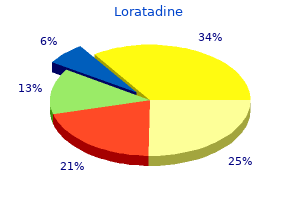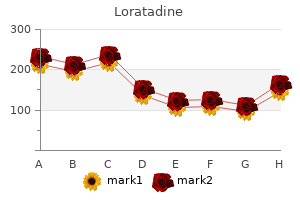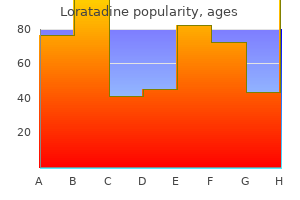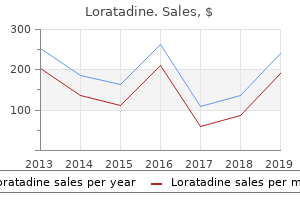"Buy loratadine 10mg mastercard, allergy forecast dallas".
By: C. Hamlar, M.B. B.CH. B.A.O., M.B.B.Ch., Ph.D.
Co-Director, Mercer University School of Medicine
Nondiscrimination Statement Priority Partners does not engage in allergy medicine 3 year old buy cheap loratadine online, aid or perpetuate discrimination against any person by providing significant assistance to any entity or person that discriminates on the basis of race allergy treatment youtube cheap 10 mg loratadine otc, color or national origin in providing aid allergy testing uk quality loratadine 10mg, benefits or services to beneficiaries allergy symptoms head purchase loratadine with paypal. Priority Partners does not utilize or administer criteria having the effect of discriminatory practices on the basis of gender or gender identity. This also occurs when a Priority Partners representative working with a member identifies a potential act of discrimination. Priority Partners documents, tracks and trends all alleged acts of discrimination. Priority Partners must also treat individuals consistently with their gender identity, and is prohibited from discriminating against any individual or entity on the basis of a relationship with, or association with, a member of a protected class. Original medical records must be released only in accordance with federal or Maryland laws, court orders, or subpoenas. The reporting law and the revised reporting forms may be found at the following website: phpa. Maryland advance directives include Living Will, Health Care Power Of Attorney, and Mental Health Treatment Declaration Preferences and are written instructions relating to the provision of health care when the individual is incapacitated. Members are to receive covered services without concern about race, ethnicity, national origin, religion, gender, age, mental, or physical disability, sexual orientation, genetic information or medical history, ability to pay or ability to speak English. Cultural competency is the ability of individuals and systems to provide effective services to people of all cultures, races, ethnic backgrounds and religions in a manner that identifies affirms, values and respects the worth of the individuals while protecting and preserving the dignity of each. Sensitivity to cultural differences allows Priority Partners to recognize and avoid situations that may discourage a member from using services or following treatment plans. The culture of poverty may also create lifestyle issues such as inability to afford telephone service, frequent residential moves, homelessness and attributes like low literacy or language barriers that make it difficult to effectively interact with members. Priority Partners believes positive member interactions may encourage members to use services more appropriately. Interpreter services also provide assistance to those who are deaf, hard of hearing, or have difficulty speaking. Auxiliary aids include assistive listening devices, written material, and modified equipment/devices. It is best to for patients to notify you in advance of an appointment to ensure there is enough time to set-up the interpreter service and to avoid a delay in their medical care services. Quality monitoring and evaluation and education through member and provider feedback are an integral part of the managed care process and help to ensure that cost containment activities do not adversely affect the quality of care provided to members. Providers may need to provide records for standard medical record audits that ensure appropriate record documentation. Our Quality Improvement staff may also request records or written responses if quality issues are raised in association with a member complaint, chart review, or referral from another source. Reporting Suspected Fraud and Abuse Participating providers are required to report to Priority Partners all cases of suspected fraud, waste and abuse, inappropriate practices, and inconsistencies of which they become aware within the Medicaid program. The Maryland Medicaid Fraud Control Division of the Office of the Maryland Attorney General created by statute to preserve the integrity of the Medicaid program by conducting and coordinating Fraud, Waste, and Abuse control activities for all Maryland agencies responsible for services funded by Medicaid. No employee may threaten, coerce, harass, retaliate, or discriminate against any individual who reports a compliance concern. The Corporate Compliance department reports substantiated allegations to the appropriate regulatory authorities who may, in turn, perform its own fraud and/or abuse investigation and take action against those who are found to have committed health care fraud and/or abuse. Penalties can include up to three times actual damages and an additional $5,500 to $11,000 per false claim. The Red Flag Rule (Identity Theft Protection) requires "creditors" to implement programs to identify, detect, and respond to patterns, practices, or specific activities that could indicate identity theft. The amount of the false claims penalty is to be adjusted periodically for inflation in accordance with a federal formula. Priority Partners does not participate with or enter into any provider agreement with any individual, or entity that has been excluded from participation in Federal health care programs, who have a relationship with excluded providers or who have been terminated from the Medicaid, or any programs by Maryland Department of Health for fraud, waste, or abuse.


Retention can be encouraged by engaging registry participants allergy immunology fellowship discount 10mg loratadine, including pregnant women and their health care providers allergy symptoms before period loratadine 10 mg online, in the reporting process allergy symptoms of beer generic 10 mg loratadine visa, and making it as easy as possible to report data to the registry allergy treatment cost discount loratadine master card. Registry staff should be trained to collect data for observational studies from both patients and health care providers who do not usually participate in research activities. They should develop a rapport with the reporters that facilitates data collection and promotes retention through relationship building. Streamlined data collection processes and simple, concise data collection forms are essential for reducing the burden of reporting. For registries sponsored by pharmaceutical companies, duplication of work because of safety reporting should be avoided as much as possible. A small monetary stipend may also encourage retention but may not be universally accepted by registry reporters. For health care providers, especially obstetric care providers, registry data are often more valuable than a stipend. Giving interim data reports to health care providers who report data to the registry is a powerful recruitment and retention incentive. Most registries enter the data directly into an electronic database, either from records or questionnaires or by means of computer-assisted telephone interviews. To ensure confidentiality, identifiers should not be included in the database containing clinical information. The goal is to make reporting data to the pregnancy registry as easy and unobtrusive as possible. Special Applications in Patient Registries pregnancy registry should be designed to allow participants to report data through telephone interviews; paper data collection forms that can be mailed, scanned, or faxed to the registry; simple Internet-based electronic data capture systems; and mobile applications. Pregnant women are ideally enrolled into a pregnancy registry before or soon after the exposure of interest and then followed throughout pregnancy. If a live infant is born, the infant may be followed for a period typically ranging from 3 to 12 months. It is best to evaluate all options for obtaining data to determine the most appropriate source for the specific data requested. The pregnant woman can provide detailed data on drug use including exposures to the drug of interest as well as other drugs, on relevant risk factors, and on the pregnancy outcome. Her health care providers, such as the prescriber, specialists, and/or obstetrician, should be able to provide or verify this information. The collection of data from a variety of sources throughout pregnancy and during infancy contributes to the accuracy and comprehensiveness of pregnancy registry data. Requiring information from multiple health care providers, as well as from the patient, is a distinct challenge of pregnancy registries. Data quality is of the utmost importance in a pregnancy registry, and multiple levels of quality assurance should be employed, beginning with the design of data collection instruments. Instruments should be designed with care, thoroughly vetted, and pilot tested to ensure ease of reporting valid, reliable data. If interviews are to be used, the interviewers should be thoroughly trained to conduct neutral, unbiased interviews using detailed interview scripts. Once captured, the data should go through a rigorous cleaning and quality assurance process to reduce errors, missing data, and misclassifications. When possible, patient-reported data should be verified by health care providers or medical records. The assessor may also evaluate likely causes for the particular birth defect, such as family history, genetic factors, and/or exposure to known teratogens. Current reporting requirements in the regulations consider any congenital anomaly a serious adverse event. Pregnancy registries conducted independently of any sponsors holding marketing authorizations are not subject to postmarketing regulatory reporting requirements. Companies conducting pregnancy registries not subject to annual reporting requirements are encouraged to include a status report in the periodic safety report. The status/interim report should describe the study design and summarize the status of the planned, initiated, in progress, or completed pregnancy registry conducted by or otherwise obtained by the sponsor during the reporting period. The status report should also provide a descriptive summary of progress to date, interpretation of findings, and appropriate analyses with comments on the clinical significance of the findings.

In nonpregnant populations allergy shots for asthma order loratadine 10 mg on line, health care utilization databases such as Medicaid claims files or records in large health maintenance organizations have become a standard source of information for drug safety studies allergy medicine birth control purchase generic loratadine from india. Some of these databases have limitations for the study of pregnancy outcomes because they do not routinely record evidence of pregnancy allergy earache loratadine 10 mg with visa. Important reproductive information allergy shots length of treatment 10 mg loratadine amex, such as gestational age at birth, birth weight, and maternal reproductive history, is rarely available. In this scenario, concentrating on women exposed to selected drugs through a pregnancy registry can increase efficiency. Pregnancy Registries dispensing of medications during pregnancy and a number of validated pregnancy outcomes. Design Whether stated or not, one scientific question in the evaluation of drugs during pregnancy is often "What would have been the outcome of this pregnancy had the woman not been exposed This design would ensure that the groups differ only in their drug exposure and that the same methodology and clinical judgment are used to assess the outcomes. The reference group could be randomized to placebo, if not treating is clinically acceptable, or to an alternative therapy, and the comparative efficacy and safety of two or more therapeutic options could be evaluated. The effect of major teratogens is so large as to overwhelm the potential impact of common methodological biases on relative risks. However, most known teratogens are associated with a more moderate increase in the risk of relatively rare malformations. Pregnancy Registry Objectives the overall purpose of pregnancy exposure registries is to provide human data on the safety of biopharmaceutical products during pregnancy. Implicit in this objective is to determine whether that risk is higher or lower than expected. Registries can evaluate multiple maternal, obstetrical, fetal, and infant outcomes, from pregnancy complications to developmental delays. Moreover, they may provide an opportunity to evaluate not only the safety, but also the effectiveness of drugs, as well as the risks associated with untreated diseases during pregnancy. They can also evaluate the effects of dose and gestational timing of exposure, as well as effect modification by maternal characteristics. Women who do participate may differ systematically from the population of exposed pregnant women who are not part of the registry, with respect to factors related to the pregnancy outcome. Therefore, baseline risks in the registry population may differ from those in the general population of women using the drug of interest. In assessing the relative risks associated with the drug, there is often a tradeoff between generalizability and validity. For example, generalizability would be enhanced by use of a population-based sampling strategy in situations where the underlying population can be enumerated. However, inclusion of non-motivated individuals might increase losses to followup, misclassification of information, and the variability and impact of confounders, thus reducing validity. In addition, population-based sampling strategies can be logistically complicated and would arguably estimate a similar relative risk, since a teratogenic effect found in participants would probably apply to "non-volunteers" as well. A peculiarity of pregnancy registries is that the population can be defined based on women, pregnancies, or fetuses. A woman might have more than one pregnancy, and she might enroll in the same registry more than once. In addition, multifetal gestations result in more than one fetus "enrolled" within the same pregnancy. Although there may be several ways of dealing with multiple gestations, it is prudent to collect information about all the fetuses. When reporting risks, whether using fetuses or pregnancies as the unit of analysis, both the numerator and denominator should be consistent with the choice. Enrollment and Followup An ideal pregnancy cohort would enroll women at conception and follow them for months beyond delivery. However, this sequence rarely happens for logistical reasons, and consequently pregnancy cohorts have some degree of unintended truncation on both sides of the ideal followup.


Integrity system An integrity system is a political and administrative arrangement that encourages integrity (adherence to a set of moral or ethical principles) pollen allergy symptoms yahoo discount generic loratadine canada. Kickback An illegal secret payment made as a return for a favour or service rendered; a form of corruption allergy forecast san francisco buy cheap loratadine 10mg. Lobbying An attempt to influence an outcome in favour of or against a specific cause allergy medicine expired cheap 10mg loratadine visa, typically directed at government and elected officials allergy medicine hydrochloride cheap loratadine generic. Money laundering the process whereby the origin of funds generated by illegal means is concealed so that it appears to come from a legitimate source. Money laundering is often use to disguise the proceeds of corruption, and aims at inserting them into economic circulation. Nepotism Granting offices, contracts and benefits to friends and relatives, regardless of merit. Perks Refer to entitlements or favours bestowed upon an individual based on the office/position held. Petty corruption Corruption involving smaller sums and typically involving more junior officials; also known as administrative corruption or retail corruption. It covers everyday corruption that takes place at the implementation end of policies, where public officials interact with the public. Petty corruption is bribery in connection with the implementation of existing laws, rules and regulations. Political will the demonstrated and credible intent of political actors to attack perceived causes or effects of corruption at a systemic level. Principal-agent model Explains how corruption occurs when an agent betrays the power entrusted in him/her by a principal to pursue his/her own interest by accepting or seeking a benefit from a service seeker, the client. Ratification Defines the international act whereby a state indicates its consent to be bound to a treaty if the parties intended to show their consent by such an act. Relationship banking A long-term, intimate and relatively open relationship established between a corporation and its banks. Rent seeking Rent seeking generally implies the extraction of uncompensated value from others without making any contribution to productivity, such as by gaining control of land and other preexisting natural resources, or by imposing burdensome regulations or other government decisions that may affect consumers or businesses. Right to information legislation Legislation that gives all citizens and organizations a legal right to demand and obtain information from public bodies and those who are performing public functions, and an obligation on all public bodies to publish, on a proactive or routine basis, key categories of information. Speed money Bribes paid to quicken the delivery of services delayed by bureaucratic holdup (red tape) and shortage of resources. State capture Where the state is held captive to the actions of individuals, groups, or firms who influence the formation of laws, rules, and regulations to serve their private interests by offering private benefits to public officials, changing the rules of the game. System of checks and balances A mechanism that allows each branch of a government to amend or veto acts of another branch so as to prevent any other branch from exerting too much power. Tax haven A country or independent region where there are no or nominal taxes and there is lack of transparency and minimal exchange of information. Wet departments Government offices that deal with many people outside government and are typically concerned with money, planning, banking, or public enterprises. Whistle-blower protection Measures (administrative or legislative) to protect people who alert the public or the authorities about corrupt transactions they have witnessed or uncovered. Whistle-blower protection shields these people from reprisals, from those they expose. The colonial roots of Latin American land inequality in a global comparative perspective: Factor endowments, institutions or political economy A specific book on pediatric nail disorders has never been written before, and although the subject is quite narrow, the gap in the clinical practice that it concerns is large. Whether or not the appearance is significant, clinicians are generally ill prepared to address these concerns. Dermatologists, pediatricians, and family physicians may all be called on to treat these patients, but they may well feel uncertain about aspects that they may think belong to other specialists. We hope all these groups of readers will benefit from the labors of the group of esteemed physicians from many fields who have focused their efforts to bring detailed and useful information on such a small appendage of the body. We also thank our publisher for having granted us confidence to complete our task.
Buy discount loratadine on line. Surprising Symptoms Of Condom Allergy You Must Not Ignore! : Health Tips.

